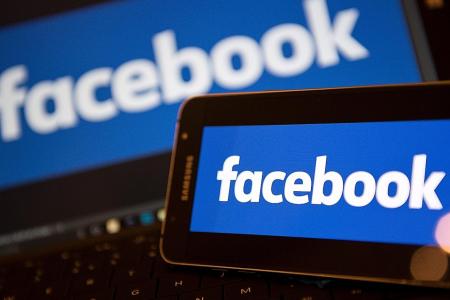You can flag fake news on Facebook
US social media giant unveils system to curb bogus information
WASHINGTON Facebook unveiled a tool that allows users to report fake news, a move aimed at stemming a wave of misinformation some claimed had influenced the recent US election.
Facebook's vice-president Adam Mosseri said in a blog post: "We believe in giving people a voice, and that we cannot become arbiters of truth ourselves, so we're approaching this problem carefully.
"We've focused our efforts on the worst of the worst, on the clear hoaxes spread by spammers for their own gain, and on engaging both our community and third-party organisations."
Facebook said it would begin testing a system enabling users to click on news items if they suspect the reports are fabricated.
It said it would work with global fact-checking organisations subscribing to the Poynter Institute's International Fact Checking Code of Principles.
Said Mr Mosseri: "If the fact-checking organisations identify a story as fake, it will get flagged as disputed, and there will be a link to the corresponding article explaining why.
"Stories that have been disputed may also appear lower in News Feed."
UNDER FIRE
Facebook has been under fire for failing to stem an epidemic of fake news that some critics believe may have helped the election of Republican Donald Trump by spreading unfounded negative news about his Democratic opponent Hillary Clinton.
Facebook has dismissed the notion that fake news shared on the social network swung the results, but it has been stepping up efforts to weed out false news.
The US social media giant, with 1.8 billion users, has resisted calls to label itself a "media company" or implement efforts to impose editorial judgments on news being shared.
But Facebook said it would crack down on "spoof domains", or sites that pretend to be real publications, as part of its most recent announcement.
Stories determined to be bogus could still be shared, "but you will see a warning that the story has been disputed".
Last month, Facebook and Google said they would cut off websites promoting fake news from their lucrative advertising networks, seeking to clamp down on "click farms" that make money when users click on sensational headlines.
But an analysis by watchdog group Media Matters found Google AdSense advertisements on more than half of sites studied with track records for pushing fake news stories.
Media Matters president Angelo Carusone said: "The recent incarnation of 'fake news' is destructive and dangerous.
"Its proliferation and the perverse incentive that rewards it with money must be stopped.
"Consumers must be discerning when reading and sharing news so as not to become part of the problem. And fake news creators should not be able to profit from their scams."
Separately on Thursday, a survey by the Pew Research Center showed 64 per cent of US adults believed fake news causes confusion about basic facts in current events.
Although many respondents said they sense fake stories are spreading confusion, they were relatively confident in their own ability to detect hoaxes.
The survey found 39 per cent "very confident" that they can recognise fabricated news and another 45 per cent "somewhat confident".
FAKE
But 14 per cent acknowledged they shared a news item they knew was fake at the time, and 16 per cent said they shared one they later realised to be fake.
The fake news during the US election included stories saying Pope Francis had endorsed Mr Trump, and that Mrs Clinton was linked to a paedophilia ring operating out of a pizzeria.
The survey of 1,002 adults was conducted from Dec 1 to 4. - AFP
Get The New Paper on your phone with the free TNP app. Download from the Apple App Store or Google Play Store now


